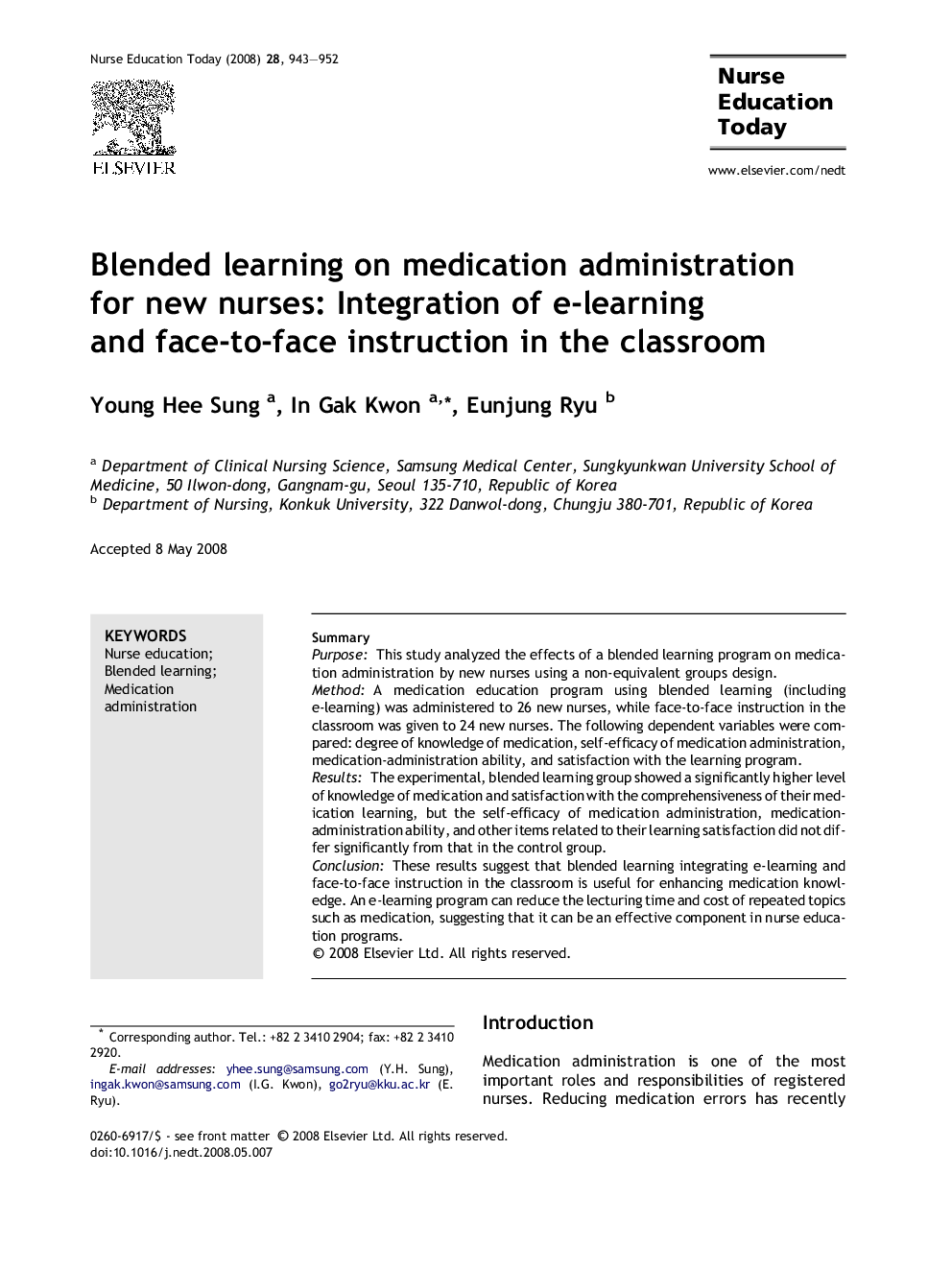| کد مقاله | کد نشریه | سال انتشار | مقاله انگلیسی | نسخه تمام متن |
|---|---|---|---|---|
| 369045 | 621607 | 2008 | 10 صفحه PDF | دانلود رایگان |

SummaryPurposeThis study analyzed the effects of a blended learning program on medication administration by new nurses using a non-equivalent groups design.MethodA medication education program using blended learning (including e-learning) was administered to 26 new nurses, while face-to-face instruction in the classroom was given to 24 new nurses. The following dependent variables were compared: degree of knowledge of medication, self-efficacy of medication administration, medication-administration ability, and satisfaction with the learning program.ResultsThe experimental, blended learning group showed a significantly higher level of knowledge of medication and satisfaction with the comprehensiveness of their medication learning, but the self-efficacy of medication administration, medication-administration ability, and other items related to their learning satisfaction did not differ significantly from that in the control group.ConclusionThese results suggest that blended learning integrating e-learning and face-to-face instruction in the classroom is useful for enhancing medication knowledge. An e-learning program can reduce the lecturing time and cost of repeated topics such as medication, suggesting that it can be an effective component in nurse education programs.
Journal: Nurse Education Today - Volume 28, Issue 8, November 2008, Pages 943–952